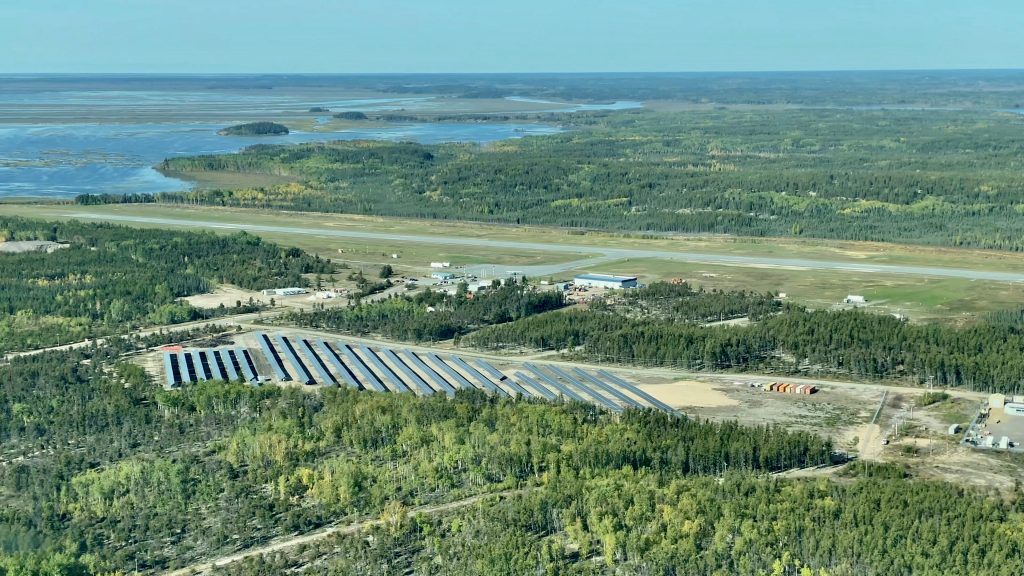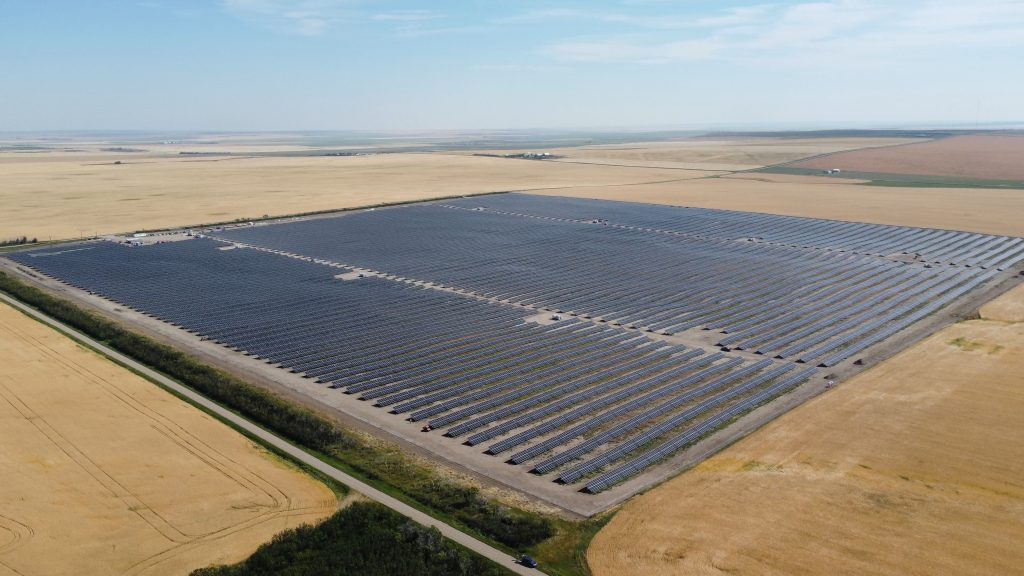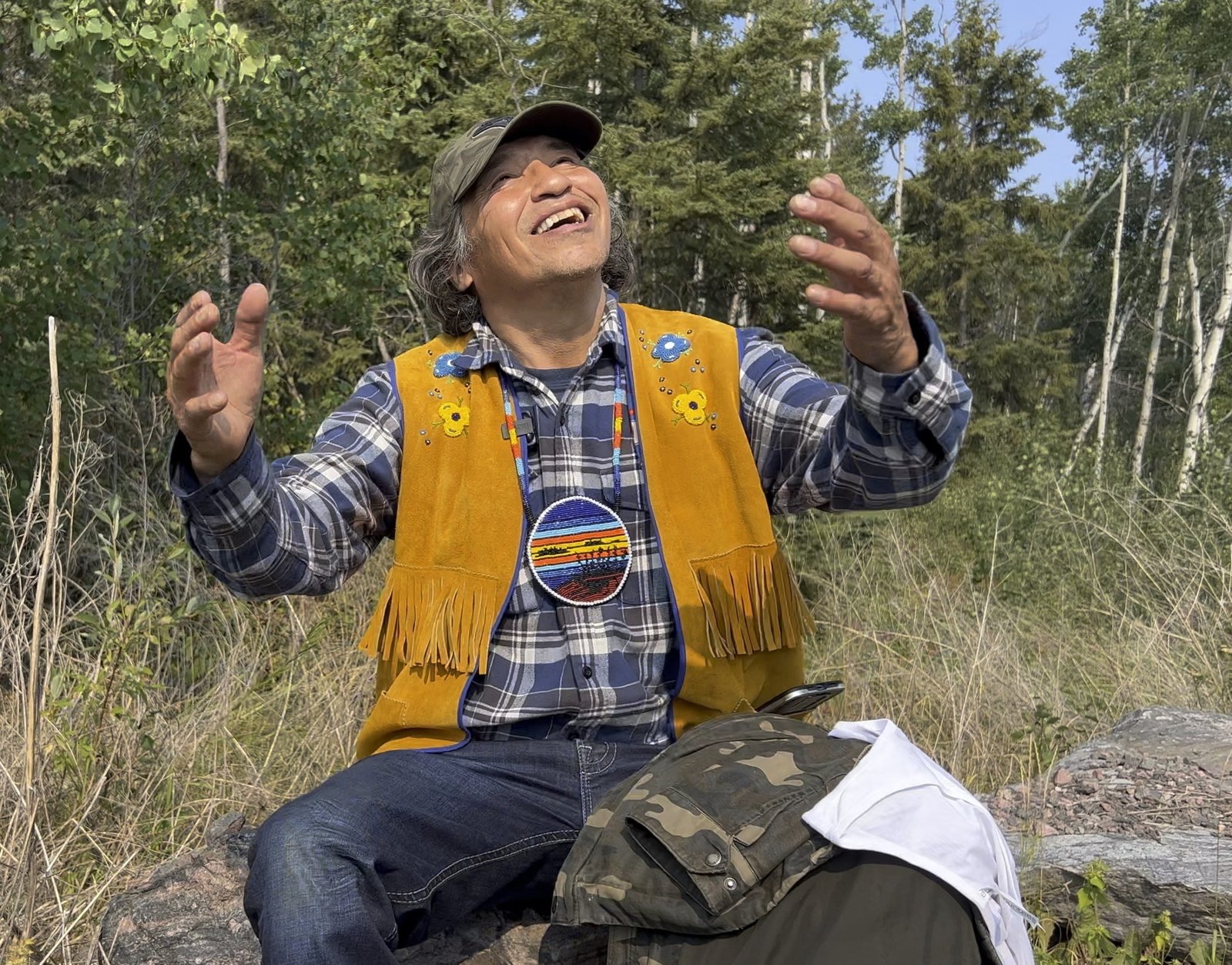By David Dodge, GreenEnergyFutures.ca
When we interviewed Chief Allan Adam of the Athabasca Chipewyan First Nation at Dene Days in Fort Chipewyan he said “What you are saying gives me goosebumps.”
We told Chief Adam that Green Energy Futures had just completed a photo tour of the First Nations three large solar projects in southern Alberta.
It’s a sentiment that’s easy to understand coming from the Chief of a First Nation that’s located in a fly-in community in northern Alberta.
The Athabasca Chipewyan First Nation (ACFN) dipped its toes into solar when they formed a company called Three Nations Energy with the Mikisew Cree and the Fort Chipewyan Metis and built a 2.3-megawatt solar farm in Fort Chipewyan.

Fort Chipewyan Solar Offsets 25% of Diesel Generation
“Together with the two other nations, we established a group called the Three Nations Energy, and we have a solar farm out by the airport that establishes about 25% of the power in town, which helps us because we have winter road and diesel has to be trucked in and out. So this just helps with more clean energy and less diesel,” says Councillor Terri Villebrun of the the ACFN.

This is a big deal as things heat up with climate change and the winter road becomes less reliable every year.
The success of the project inspired the ACFN to aim higher and build more solar farms.
“We have three huge solar projects happening in southern Alberta and it’s one of the largest indigenous owned in Western Canada,” says Villebrun.
“With everything with climate change and global warming. We live around oil sands country so we really wanted to divert our business into other opportunities and we found this wonderful opportunity that’ll help move our people forward,” says Villebrun.



First Nation Builds Three Merchant Solar Farms
“We’re building three merchant solar farms in partnership with Concord Pacific through their subsidiary Concord Green Energy. So, there’s three 22-megawatt solar farms in Coaldale, Vulcan, and Monarch,” says Jason Schulz, executive director of strategy advisory services with the ACFN.
“We’re 50% owners with Concord Pacific, so each is an equal owner,” says Schulz. This makes the project the largest First Nations ownership stake in a renewable energy project in Canada.
“This is a $140 million project. And then when we add the battery storage, that’s another $60 million or so,” says Schulz. “It’s definitely a fairly large deal for ACFN it’s our largest investment to date, so we’re excited about the prospects of it.”
Prior to this the largest First Nations renewable energy project was the Grand River development of solar and wind projects in Ontario that are 10% owned by the Six Nations of the Grand River.
The ACFN stake is three times larger.
Concord Green Energy is an equal partner with the ACFN in the 68-megawatt solar project. Concord has built solar, wind and hydro projects across Canada.

The ACFN, Economic Diversification and Climate Change
Chief Allan Adam has led the ACFN as Chief since 2007 and he’s been passionate about diversifying the ACFN’s economic interests and has worked on investments in renewable energy for many years.
“The future looks bright for us. And we’ve always said this in the past that in order to look for a brighter future, we have to look beyond the oil sands and that’s what we continue to do,” says Chief Adam. “And there’s no better way to do it than having solar farm because, The sun is there. The sun is hot, it’s bright, and it’s beautiful and it gives us life.”
The solar farms will provide a multi-decade stream of revenue for the First Nation and importantly the investments are tangible action to fight climate change.
Chief Adam says the ACFN will continue to invest in green energy.
“We will continue to invest in green energy regardless [whether] it’s solar, wind, or whatever it has to be, we will be in there. It’s because we care so much about Mother Nature and we care about human society and you know, we just contribute to human society for a better living and a better lifestyle out there.”
“Hopefully everybody will be able to grab on and grasp this whole thing because we have one chance and one chance only,” says Chief Adam.

